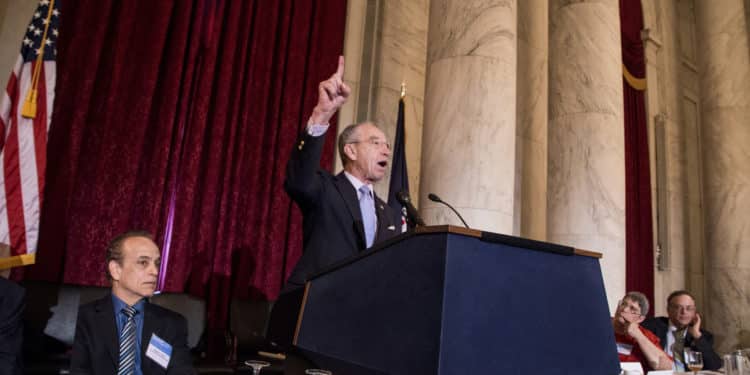On August 19, 2025, Sen. Chuck Grassley (R-IA) called for Customs and Border Protection (CBP) to seek accountability for allegations of whistleblower retaliation within the agency. Grassley pressed CBP to investigate its officials who engaged in retaliation and urged the agency to hold such officials accountable for their actions.
These calls come following Grassley’s assistance in restoring the careers of three whistleblowers in CBP and ending the retaliation against them in May 2025. These whistleblowers—Fred Wynn, Mike Taylor, and Mark Jones—blew the whistle on CBP for not complying with the DNA Fingerprint Act of 2005. Grassley assisted in reinstating the whistleblowers in the agency and compensating the whistleblowers for the retaliation they faced. A 2021 report from the Office of Special Counsel (OSC) detailed the retaliation the whistleblowers faced, including significant changes in working conditions and duties and lowered performance reports, Ultimately, the retaliation resulted in the revocation of Jones’s and Taylor’s law enforcement credentials.
“To ensure that retaliation does not happen again at DHS, CBP or any of the Department’s other component agencies, the bureaucrats who retaliated against Mr. Wynn, Mr. Taylor, and Mr. Jones must be held accountable,” Grassley wrote.
Grassley has previously supported and assisted whistleblowers in numerous federal agencies. His assistance to the CBP whistleblowers marks the third instance in 2025 alone of successfully reinstating or compensating previously whistleblowers who had been retaliated against. In March 2025, Grassley urged the IRS to promote whistleblowers Gary Shapley and Joseph Ziegler, which the IRS subsequently did. Shapley and Ziegler had blown the whistle on government interference in the investigation into Hunter Biden’s taxes, then faced retaliation for doing so. Further, at National Whistleblower Day on July 30, Grassley announced that he had assisted an FBI whistleblower in reinstating the whistleblower’s clearance and employment.
Additionally, Grassley recently introduced two pieces of legislation to further protect federal whistleblowers. First, Grassley introduced legislation that sought to extend the whistleblower protections in the Whistleblower Protection Act of 1989 to employees of the FBI, which, among other things, would protect FBI whistleblowers from retaliation and extend the anti-gag provision to be included in nondisclosure policies at the agency. Second, Grassley cosponsored the Expanding Whistleblower Protection for Contractors Act, which strengthens whistleblower protections for federal contractors. Moreover, Grassley recently cautioned President Trump to protect whistleblowers during Trump’s government downsizing process. Such a process could be used “as an excuse to retaliate against federal workers who have made protected whistleblower disclosures,” Grassley wrote.
The exposure of the retaliation within CBP and Grassley’s subsequent calls for investigation and accountability mirror Grassley’s prior efforts to protect and support whistleblowers in the federal government. “Holding the retaliators accountable would send a clear message throughout the
agency that this type of behavior towards whistleblowers cannot and will not be tolerated,” Grassley wrote in a letter to CBP Commissioner Rodney Scott. “I am requesting that CBP investigate these reported instances of whistleblower retaliation and hold accountable, as appropriate, all individuals responsible for the seven-year nightmare these brave whistleblowers endured.”
